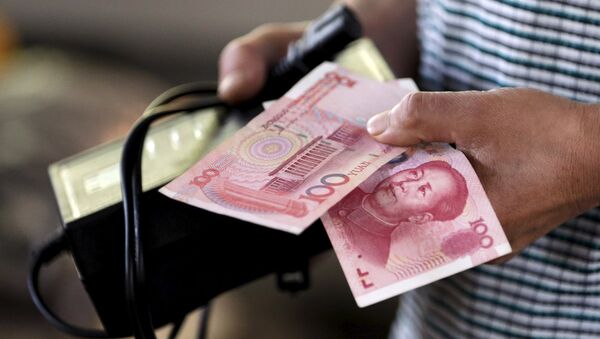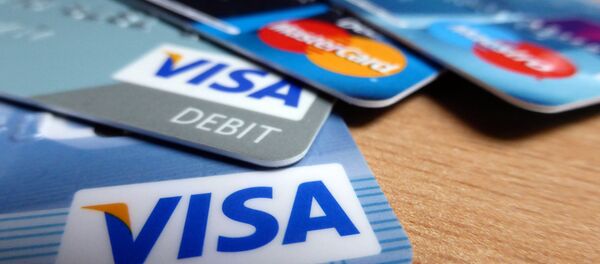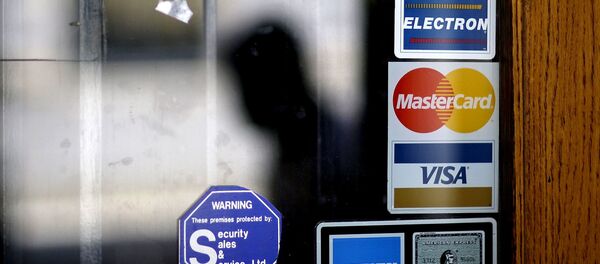According to the NPCIC report, in 2018 about 17.46 million people in China were restricted from buying plane tickets and 5.47 million people were not allowed to buy tickets on high-speed trains. Further, over 3.59 million Chinese enterprises were blacklisted, which barred them from such activities as bidding on projects, accessing securities markets, taking part in land auctions and issuing corporate bonds, the South China Morning Post reported.
People, companies and even governments in about two dozen cities across China are all subject to the pilot systems for judging one's social credit — a catchall term for one's net social standing, designed to encourage socially beneficial behavior and discourage antisocial behavior. According to a November 2018 op-ed in the Washington Post by Bing Song, the director of the Berggruen Institute China Center, the score is informed by "four distinct segments: a government trust system, a commercial credit system, a social trust system and a judicial trust system."
"What drives this gargantuan project is an effort to build a culture of trust in Chinese society," Bing wrote. "Given this broad aim, a more appropriate term to describe the initiative is a ‘social trust system.'"
"Many measures introduced as part of the social trust system are intended to curb official corruption, tackle official dereliction and improve efficiency in enforcing court decisions," she noted, "as well as punish unethical behaviors of professionals such as lawyers, doctors and teachers."
Other things can land your social credit score in hot water, too, such as making false marketing claims, faking records, swindling customers, failing to repay loans, collecting money illegally and generally behaving badly in public.
"On Weibo, China's comparison maybe to Facebook with equative numbers, Chinese people are more visibly positive about [the social credit system] because it can punish smokers in hospitals or people stealing seats on trains, and welcome the blacklisting of these individuals out of revenge," Andy Brennan, a journalist with China Global Television Network (CGTN), told Sputnik Thursday.
Brennan noted the genesis of the social credit system "appeared in the 2000s because of the market economy to deal with cheats, fraudsters, benefit fraud and corruption from a changing economic ideology and low-trust environment. It's to build up a culture of trust."
SMCP noted that human rights advocates have raised concerns that the system is arbitrary and unfair, failing to take into account individual circumstances. The outlet quoted a lawyer as saying, "Many people cannot pay their debt because they are too poor but will be subject to this kind of surveillance and this kind of public shaming… It violates the rights of human beings."
"[T]he Orwellian fear is inflamed by fervent anti-socialist, red scare ‘China watchers,'" Brennan said. He, along with many other critics, have noted that in Chinese society, people have a fundamentally different view of what the proper limits of government reach are than do Americans, who have "a history of fear of public power."
However, critics of China's initiative have noted that while different iterations of the system have had some problems, a great deal of progress has been made in sorting out just such inconsistencies. Brennan noted one example of a student who was rejected from university because of his father's large debt, a case which caused public outcry. Bing also described the back-and-forth negotiations about just what the social credit system should and should not affect.
"The point of pilot programs is to explore boundaries," Bing said. "These programs have thus been revised or revoked at times, depending on public reception. For instance, Suining County in Jiangsu Province was one of the first local governments to roll out a grading system for its residents, giving them an A through D mark. It sparked heated debates. The most contentious aspect was the inclusion of point deductions for ‘unauthorized' petitions… The media and public backlash forced the county mayor to apologize and revise the scoring system."
The US' ‘Broken' Credit System
Further, Brennan noted that a similarly nefarious system exists in the United States in the form of financial credit scores.
In the US, people can check credit score, and parties have intrusive records about people like repayment history and debt burden and salary; people can go online and find out what other people paid for their houses if they try," the journalist told Sputnik. "[I]n China you can't get that information — to my knowledge — with such ease."
"Credit scores can impact how much you pay in utilities, your chances of being approved for a lease, or how much you pay in car insurance," Alternet reported earlier this month, noting that more than half of Americans have poor credit scores.
"What this comes down to is that if you're living (or lived) in poverty, other aspects of your life quickly become more expensive, too, making it all the harder to save. It's hard to get ahead when something like a credit report or rental history are pretty much required, but also deeply stigmatized in favor of the wealthy," the outlet noted.
US congresswoman Rep. Alexandria Ocasio-Cortez (D-NY), a member of the House Finance Committee, put the US financial system on blast earlier this month following a scandal in which someone attempted to falsely claim online that she had a low credit score and was, therefore, untrustworthy.
"In the wake of the Equifax scandal, privatized credit scoring is a dice game & the credit score system is very broken too," she tweeted. Consumer credit reporting agency Equifax, responsible for helping decide people's credit scores, suffered a massive data breach in 2017 in which 143 million Americans had their private information stolen, imperiling the all-powerful credit scores to which they hold the key.
Also a good moment to note that in the wake of the Equifax scandal, privatized credit scoring is a dice game & the credit score system is very broken too.
— Alexandria Ocasio-Cortez (@AOC) February 9, 2019
If only someone could do a Financial Services hearing about that 🤔 https://t.co/1jjrc2M50P
A Federal Trade Commission report in 2013 found that 21 percent of consumers had verified errors in their credit reports, 13 percent had errors that affected their credit scores, and 5 percent had errors serious enough to cause them to be denied or have to pay more for credit, the nonprofit group Americans for Financial Reform reported at the time.
"It's unconscionable that 40 million American have errors in their credit reports, and that 10 million have errors grave enough to cause them to be denied or charged more for credit or insurance or even be denied a job," Chi Chi Wu, staff attorney at the National Consumer Law Center (NCLC), said at the time. "There needs to be serious and wholesale reform of the credit reporting industry."
Last September, 15 members of the Senate Democratic Caucus sent a tersely-worded letter acting Consumer Finance Protection Bureau director Mick Mulvaney. Noting that the US Department of Education, which manages the $1.5 trillion of student loan debt owed by Americans, had ceased cooperating with the CFPB, the senators lamented that "the Bureau has abandoned the very consumers it is tasked by Congress with protecting. Instead, you have used the Bureau to serve the wishes of the most powerful financial companies in America."
Bing also noted that many of the more prominently decried consequences felt by Chinese citizens with low social credit scores are not so different from those suffered by executives in capitalist countries who mismanage funds, either.
"Senior officials from those governments suffer the consequences and can be barred from certain activities, especially high-end consumption like flights or staying in prestigious hotels, which is similar to travel restrictions for those who have filed for bankruptcy in countries like Australia or Singapore," she wrote.
"So, it's an amplifier of regulations. If you drop down, say through traffic violations, it costs you welfare subsidies, but if you do good things like blood donation, your score will increase," Brennan said.








